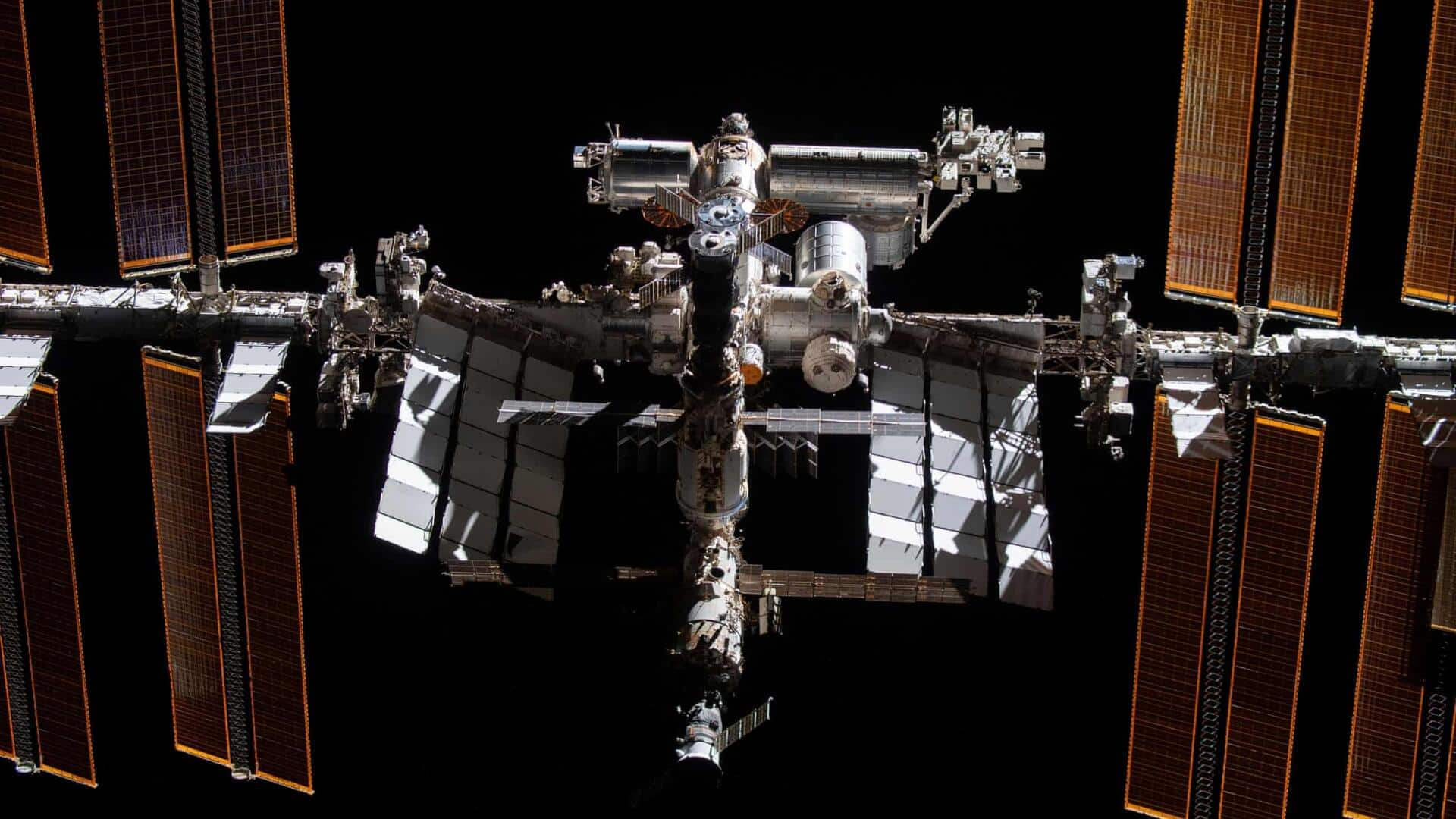
ISS astronauts take shelter as Russian satellite shatters in space
What's the story
A defunct Russian satellite, Resurs-P1, disintegrated in space on Wednesday, forcing astronauts on the International Space Station (ISS) to take shelter for about an hour. The breakup, which occurred at an altitude of roughly 354km in low Earth orbit, has added to the mass of space junk already in space. Roscosmos—Russian space agency that operated the satellite—hasn't publicly acknowledged the event.
Space debris
Debris from the incident poses ongoing risk
According to the US Space Command, the disintegration of Resurs-P1 immediately created "over 100 pieces of trackable debris." By Thursday afternoon, US space-tracking firm LeoLabs had detected at least 180 pieces. LeoLabs stated that "due to the low orbit of this debris cloud, we estimate it'll be weeks to months before the hazard has passed." This incident raises concerns about the Kessler effect, a phenomenon where satellite collisions with debris can create more hazardous junk and increase crash risks.
ISS response
Satellite breakup triggered ISS emergency procedures
The Resurs-P1 satellite, declared defunct by Russia in 2022, disintegrated in an orbit near the ISS. This led to the six US astronauts onboard taking shelter in their spacecraft for an hour, as per NASA's Space Station office. The astronauts were then alerted by NASA mission control in Houston to execute "safe haven" procedures, where each crew member rushes into the spacecraft they arrived in case an emergency departure is required. After nearly one hour, the astronauts resumed their work.
Advocacy
Calls for international space traffic management intensify
The disintegration of the Resurs-P1 satellite has added urgency to calls from space advocates and lawyers for countries to establish an effective international mechanism of managing space traffic. In 2021, Russia faced criticism when it struck one of its defunct satellites with a ground-based anti-satellite missile. Harvard astronomer Jonathan McDowell said there was no immediate indication that Russia had launched a missile to strike Resurs-P1 satellite, suggesting the breakup could have been caused by an onboard issue like leftover fuel.
Information
Satellite's was decommissioned in 2021 over equipment faliures
Roscosmos decommissioned the Resurs-P1 satellite due to onboard equipment failures in 2021 and Russia declared it dead in 2022. Since then, it has appeared to be lowering its altitude through layers of other active satellites for an eventual atmospheric re-entry.